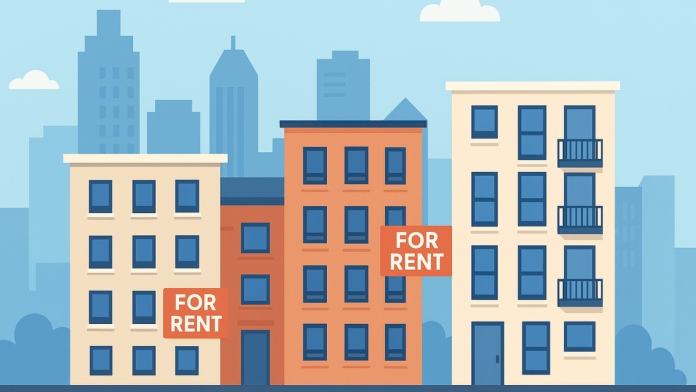A new idea is being discussed in Denver to help address the city’s affordable housing crisis. It is called a “Vacant Home Tax,” often referred to as a “Ghost Tax.” The proposal would charge landlords who keep rental units empty for long periods of time, usually around six months or more.
The goal of this tax is to encourage property owners to rent out their vacant homes or lower the rent on units that are sitting empty. Supporters believe this could help increase the supply of affordable housing in Denver and create new funding to support housing programs.
Reports show there are more than 27,000 vacant rental units in the Denver metro area. Housing advocates argue that some units remain empty because landlords prefer not to lower prices. A vacancy tax, they say, could motivate landlords to adjust rents and make affordable housing more accessible to working families and people experiencing homelessness.
Why the Idea Is Being Discussed
The vacancy fee proposal came in a letter sent to city leaders by groups focused on affordable housing. The letter suggested different ways Denver could raise money after the failure of a recent ballot measure.
Dean E. Dawson sentenced to 18 months for failing to pay employment taxes
That measure, known as Measure 2R, would have added a small sales tax to generate hundreds of millions of dollars for affordable housing. Voters rejected the measure last November, leaving city leaders and advocates searching for other funding sources.
The letter recommended vacancy fees as a possible solution, along with other ideas such as corporate head taxes, creative bonding strategies, and better use of city-managed funds. The authors wrote that taxing long-term empty rental units could raise significant revenue. They also said this approach might be more effective than targeting unoccupied second homes, which are less common in Denver.
Groups behind the proposal also called for more community involvement in planning any future housing initiatives. They said that voters wanted more time and clarity about how money would be spent when Measure 2R was introduced.
Reactions and Examples From Other Cities
The idea of taxing vacant homes has drawn mixed reactions. Supporters argue that landlords should make empty units available when so many people need affordable housing. They believe vacancy fees could both reduce the number of long-term empty apartments and provide funds for housing development.
💵 SpaceX’s $5B earnings vs. $6k tax bill: shocking contrast revealed in secret documents
Opponents say the proposal could backfire. They argue that adding new taxes or fees may simply increase costs for renters if landlords pass expenses along. Critics also describe the policy as too intrusive and not in line with what residents want.
Several cities have already tried vacancy taxes with varying results. Oakland, California, charges property owners about $6,000 on homes used fewer than 50 days a year. Washington, D.C., has a similar program. In San Francisco, voters approved a tax, but higher courts later struck it down. In South Lake Tahoe, voters strongly rejected a vacancy tax proposal last year.
Internationally, Toronto applies a 3% tax on homes vacant for more than six months. Vancouver has used an empty homes tax since 2017, also set at 3% of the property’s assessed value. In Australia, foreign property owners face fees if they leave homes vacant for more than half the year. Honolulu has debated an empty homes tax since 2018 but has not yet adopted one.
For Denver, the vacant home tax is only one option among many being explored. City officials have said they are open to creative ideas and are listening to proposals from community partners as they continue searching for ways to expand affordable housing for residents.


